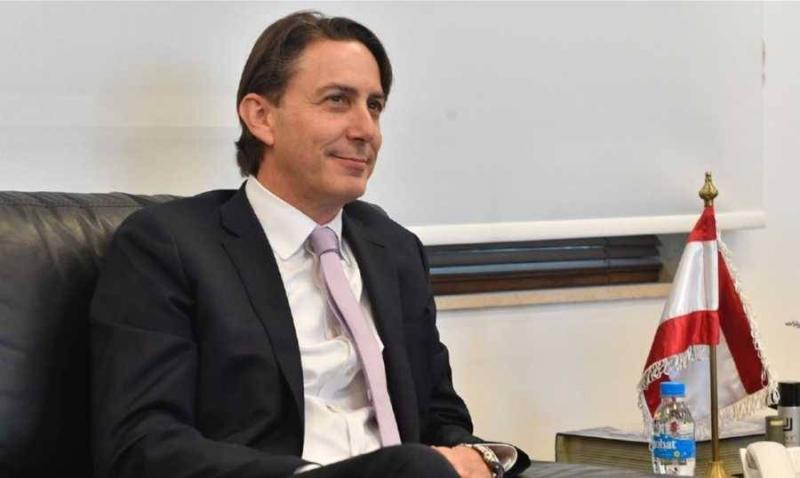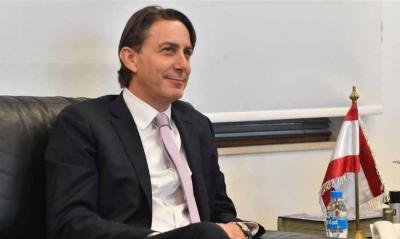Following the adoption of UN Security Council Resolution 2735, proposed by the United States, which calls for an immediate, complete ceasefire in the Gaza Strip and the full withdrawal of Israeli occupation forces, with hopes for positive repercussions on the situation in southern Lebanon once implemented, Amos Hochstein, Senior Advisor to the White House on Energy Security and Investment, will seek to ensure that the day after the cessation of war in Gaza marks the beginning of resuming indirect negotiations for demarcating, or rather defining, the land borders between Lebanon and the Israeli enemy, according to "Al-Diyar." Therefore, his return to Lebanon and the region will be very soon, as soon as the provisions of the new international resolution for an immediate and comprehensive ceasefire in Gaza and southern Lebanon are enacted.
The aim of his visit will primarily be to restore international security and stability to these borders, at least as it existed from August 14, 2006, to October 7, 2023, despite all the assaults, violations, and events that occurred over these years, culminating in the full implementation of Resolution 1701 to achieve sustainable stability in southern Lebanon. It is noteworthy that Hochstein stated on the eve of the US-French summit in Normandy that any agreement between the two parties would not necessarily lead to eternal and lasting peace, knowing that delaying the resolution of the issue of the Israeli withdrawal from the Shebaa Farms and Kfarshouba heights would postpone reaching a final solution, even if the borders were delineated.
Informed political sources said that Hochstein now faces the task of persuading Hezbollah to engage in these indirect negotiations for demarcating the land borders, especially after the organization's Secretary-General, Sayyid Hassan Nasrallah, declared last February that there is no such thing as demarcating the land borders, as they are already defined, and reiterated in one of his recent speeches that no demarcation exists between Lebanon and occupied Palestine, stating: "There is the implementation of the defined borders, and there are areas occupied by the enemy that must be vacated."
These same sources believe that the American envoy attempted to reassure Hezbollah by dividing his proposal into several phases, especially in the first phase, without providing concrete guarantees. He did not mention the Radwan force nor the need for them to withdraw several kilometers from the border, as circulated in media reports. Instead, he discussed a return to the situation before October 7 or 8. He may have implicitly suggested that this force was not present in that area before but was brought in after the southern front became a “support and occupation front” for Hamas in Gaza, which will not be heavily present as things return to normal at the border.
The second phase, according to the sources, pertains to supporting Lebanon to improve its economic and financial situation and releasing the project to import gas and electricity from Egypt and Jordan via Syria, which previously collided with the "Caesar Act" imposed on Syria by the United States. Hochstein is expected to find a way out of these sanctions that have affected Lebanon and hindered its access to electricity during the past period.
The third phase, deemed the most crucial by the sources to ensure lasting security and stability at the borders, addresses the issue of defining the land borders between Lebanon and Israel, based on the general framework of UN Resolution 1701. Here, Hochstein must find suitable solutions for both parties to implement the mentioned resolution, leading him to finalize the "land border agreement" between them. It is noted that this phase does not include the withdrawal from the farms and Kfarshouba heights, which Lebanon will not accept, as it demands Israeli withdrawal from all Lebanese territories and locations it occupies. Conversely, there is also the issue of the Israelis refusing to cease their air operations that violate Lebanese sovereignty and Resolution 1701.
The sources indicated that the first phase of Hochstein's proposal could be implemented, which is unrelated to quickly delineating borders, through a return to calm in the southern region. However, the sources believe that the second phase will be more challenging if his country does not lift the sanctions on Syria. The third phase will be more complex, especially since Hochstein wants to define the borders and leave the farms and heights to a later stage, making the delineated line not the actual and final border of Lebanon according to "Al-Diyar."




